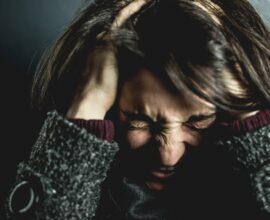Depression adversely affects the ways people feel, think, and react, impacting physical health and various aspects of human life. It’s been observed that a lot of people opt for medication, like antidepressants, to cure depression. However, many natural methods can help manage symptoms and minimize the risk of future incidents. One may feel depressed at any age, and it can affect anyone. The National Institute of Mental Health (NIMH) states that people are more likely to experience it if they have any one or more of the following symptoms:
- Experiencing stress, trauma, or a life-changing event
- A family history of depression
- Any physical illness, like cancer
- Use specific medications or other substances
In this article, we’ve identified the following tips that may help people manage depression or avoid its symptoms.
1. Exercise Regularly
Physical activity is an amazing antidepressant that experts suggest doctors incorporate as a treatment. It’s been proved that exercises act as an underutilized treatment for a mood disorder, boosting both physical and mental well-being. Though it’s hard for a depressed person to begin exercising, a lack of activity can worsen symptoms too. Whoever experiences difficulties in beginning exercise could try only 5 minutes of walking or another recreational activity in the morning and another 5 minutes in the evening. Gradually increase the timings over the following days and weeks. You should target 150 minutes of moderate-intensity exercise every week, divided into sessions with various timings.
2. Don’t Stress Yourself
Stress and depression or anxiety are interlinked. People who are vulnerable to depression may have a higher risk of developing it if they have chronic stress. People born with genetic factors have a higher risk. Susceptibility can be developed during childhood as well, because of neglect or abuse. Stress adversely impacts life satisfaction and overall health. Though it isn’t always possible to avoid stress, taking the following steps may help you:
- Saying no to extra demands
- Sufficient rest and sleep
- Taking breaks from work
- Regular Breathing and physical exercises and meditation
Always consult a doctor before taking any supplements or over-the-counter (OTC) medication to ensure its suitability.
3. Sleep Well
Depression and insomnia are strongly interlinked. A lack of sleep can deteriorate symptoms of depression, and it is also a common symptom. There are a few tips that people can try to naturally improve their sleep:
- Sufficient exercise during the day
- Follow a healthy diet
- Refrain from heavy meals, caffeine, and alcohol before sleep.
- Go to bed and wake up at the same time daily, including on weekends.
- The bedroom must be dark, quiet, and of a bearable temperature.
- Eliminate all electronic gadgets from the sleeping area and turn them off half an hour before bedtime.
- Get up again if you can’t fall asleep within 20 minutes. Read something or find some other distraction for some time. Then retry.
- Minimum exposure to bright light during evening hours.
- Don’t drink excessive fluid before bedtime.
There are other tips like breathing or relaxation exercises before sleeping. Moreover, there’s a 4-7-8 breathing technique to calm anxiety. Take help from an expert for the same. Consult a doctor before utilizing any supplements or medications to confirm that they’re safe for use.
4. Maintain a Healthy Diet
A healthy diet may help prevent depression and improve mental well-being. Dietary interventions play a significant role in healing pessimism. The following foods could be helpful:
- Green tea
- Healthy oils, like olive oil
- Fish
- Fresh fruits and vegetables
- Soybean products
- Whole grains
Simultaneously, people should reduce their consumption of the following:
- Trans fats
- Most meat products, including red meat
- Sugary desserts and sodas
- Premade baked goods
Fresh fruits and vegetables provide antioxidants to protect the body from oxidative stress and cell damage. Processed foods may be harmful to the gut microbiota, increasing the risk of depression.
5. Considering Talking Therapy
Psychotherapy, or talking therapy, helps us identify the causes of depression and find feasible solutions by any one or more of the following methods:
- Cognitive-behavioral therapy (CBT), helps a person find new ways of thinking and acting
- Counseling for particular issues, like bereavement
- Psychoanalysis, to look into past issues
Therapy can be performed one-on-one, with a group of people who meet for therapy only, or with family members or partners.
6. Avoid Alcohol and Drug
Frequent use of alcohol and a few recreational drugs intensifies the risk of depression and worsen the symptoms. A lot of people suffer from both depression and a drug use disorder or alcohol use disorder. Though it isn’t very clear how the disorders affect one another.
Any individual using drugs or alcohol in a harmful manner and is depressed will require help for both conditions. If someone has concerns regarding alcohol or drug use, with or without depression, they must consult a doctor or some other specialist for help.
7. Avoid Common Triggers
Several factors can trigger symptoms of stress and depression, and these will differ from one person to another. One can avoid or minimize exposure to a few of these triggers. A person can avoid anyone or more of the following:
- Lack of adequate sleep because of late nights
- Exposure to news, certain movies, and other media
- Using alcohol or drugs, without any related disorder
You can decide on a particular time of the day to check emails or watch the news.
There isn’t any assurance that anyone can avoid their triggers. However, being mindful of them may help find ways to reduce their impact.
Conclusion
It isn’t always feasible to prevent or avoid depression. However, the wide availability of effective treatment procedures, and a few lifestyle preferences help to manage symptoms and prevent a recurrence. Whenever there are overwhelming symptoms of depression or if someone is contemplating suicide or self-harm, they must seek immediate medical attention.




